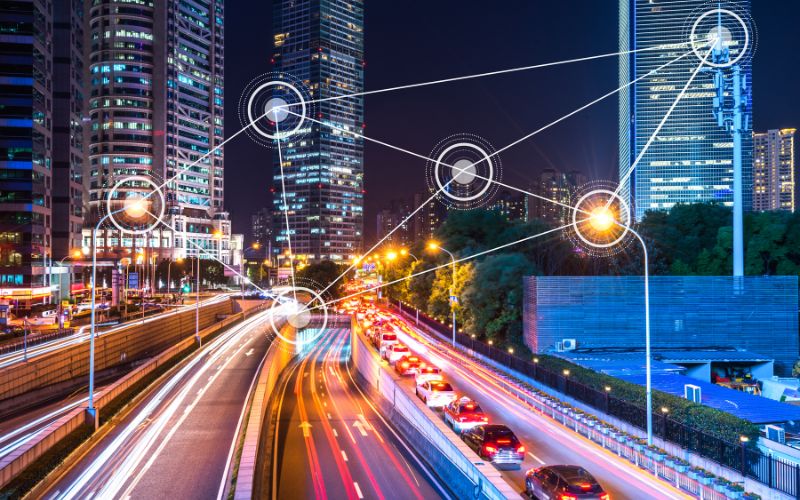As cities around the world expand, the difficulties of urban living become increasingly apparent, notably in transportation. Urban planners must deal with various complications, including traffic congestion, pollution, and ineffective public transit systems. However, the development of smart traffic solutions is altering how we navigate around our cities, providing a more efficient, sustainable, and exciting urban environment.
Reducing traffic congestion
One of the most significant advantages of smart cities traffic management is its potential to reduce traffic congestion. Traditional traffic management systems frequently rely on fixed traffic light timing schedules and have limited data entry options. Smart traffic systems, on the other hand, alter traffic signals and regulate traffic flow in real-time using data from multiple sources, such as cameras, sensors, and GPS devices. For example, adaptive traffic signal management systems can modify light timing to match current traffic conditions, reducing wait times and improving traffic flow. It relieves traffic congestion and reduces the chance of accidents and the time drivers spend on the road.
Enhancing public transportation
Smart cities traffic management is also helping to improve the efficiency and attractiveness of public transport. Real-time monitoring and data-driven forecasting help transit authorities fine-tune routes and schedules based on observed activity and preferences. Passengers benefit from precise arrival times and may better plan their trips, making public transportation a more viable option for driving. Also, smart ticketing systems make payments convenient and give essential insights into passengers’ behavior to enhance the service delivery system. Smart traffic solutions driven by technology make public transport more efficient and convenient, reducing overall traffic congestion and pollution.
Improving Safety
Security is a major concern in urban areas, and smart city traffic control is instrumental in increasing traffic safety. ADAS and connected vehicle technologies enable vehicles and traffic signals, other vehicles, or traffic signs to exchange information. It allows functions such as forward collision warning, lane departure warning, and automated emergency braking, which aid in avoiding crashes and fatalities. Furthermore, road management solutions can inform drivers about potentially unsafe situations, including road blockages, accidents, or bad weather, in real time. Such information enables drivers to make proper decisions and avoid dangerous road sections where possible, thus increasing safety on the roads.
Reducing Environmental Impact
Traffic congestion is a significant contributor to air pollution and greenhouse gas emissions. Smart city traffic management can minimize car emissions through efficient traffic flow and minimal idling occasions. For example, traffic management, data analytics, and machine learning allow for identifying potential congestion areas and preventing excessive stop-and-go, which negatively impacts air quality. Furthermore, boosting the use of public transit through increased efficiency and reliability contributes to fewer vehicles on the road, which reduces emissions even further. As cities adopt more sustainable practices, smart traffic solutions will be integral in meeting environmental goals and improving urban air quality.
Conclusion
Choosing the appropriate road management solutions can alter urban life by solving some of the most critical issues confronting modern cities. These breakthrough technologies are paving the path for smarter, more sustainable cities by reducing traffic congestion, boosting public transportation, increasing safety, lowering environmental impact, and promoting better urban planning. As we look to the future, we will need to continue developing and implementing smart cities traffic management technologies to create urban settings that are not only more efficient and livable but also more resilient to the needs of an expanding population. For cutting-edge solutions in this field, consider exploring the offerings from XCOGNITION, a leader in innovative traffic and urban management technologies.
